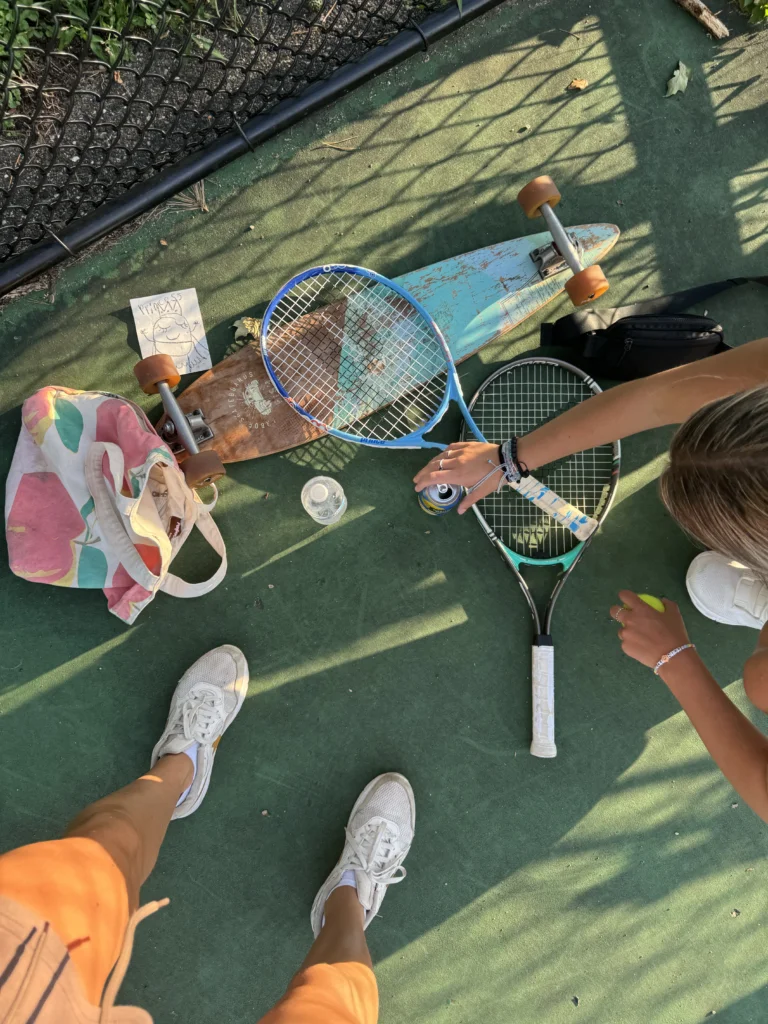
You’ve likely noticed how making friends gets harder after school ends, and you’re not imagining it. I can tell you that adult friendship requires intentional strategy, not luck or chance encounters at the coffee shop. The playground connections of childhood won’t happen naturally anymore, but here’s what I’ve learned works: you need a systematic approach that puts you in the right places, with the right mindset, ready to invest real effort into building lasting connections that actually matter.
Identify Your Friendship Goals and Values

Before you start putting yourself out there to meet new people, you need to get crystal clear on what kind of friendships you actually want. I can tell you from experience, most people skip this step and wonder why their social life feels hollow.
Are you seeking deep, meaningful connections where you discuss life’s big questions, or do you prefer casual companions for activities and shared interests? Maybe you want professional allies who challenge your thinking and support your ambitions. I’ve never seen someone build a strong social circle without first knowing their non-negotiables.
Define what loyalty, trust, and support mean to you specifically. Write down three qualities you absolutely must have in a friend, then three deal-breakers you won’t tolerate. Remember that your authentic core values will show up in how you actually spend your time and energy with friends, not just what you think sounds good on paper.
Put Yourself in Social Situations Regularly
The hardest part about making adult friends isn’t finding people you like, it’s actually showing up where those people spend their time. I can tell you from experience, you won’t build meaningful connections sitting at home. You need to consistently position yourself in environments where genuine relationships can develop.
You won’t build meaningful connections sitting at home—you need to consistently show up where potential friends actually spend their time.
Here’s where powerful people create their social networks:
- Professional networking events – Industry meetups, conferences, and trade associations
- Skill-building activities – Classes, workshops, volunteer organizations that align with your interests
- Regular community spaces – Gyms, coffee shops, neighborhood groups you visit consistently
- Interest-based gatherings – Book clubs, hiking groups, hobby meetups where passion drives conversation
I’ve never seen lasting friendships form from one-off encounters. It’s the repeated exposure, the familiar faces you see week after week, that transforms strangers into allies. Consider joining book clubs where literary discussions create natural opportunities for deeper conversations and meaningful connections with fellow readers.
Join Activities Based on Your Interests

When you align your social activities with what genuinely excites you, making friends becomes natural rather than forced. I can tell you from experience, shared passions create instant connections that small talk never will.
Choose activities where you’ll encounter the same people repeatedly – book clubs, hiking groups, cooking classes, or volunteer organizations. I’ve never seen friendship develop faster than when people bond over something they’re both genuinely passionate about.
Don’t pick activities just because they’re popular or convenient. If you hate running, don’t join a running club expecting miracles. Your authentic enthusiasm draws like-minded people toward you, and that magnetic pull gives you serious social leverage.
The key is consistency. Show up regularly, contribute meaningfully, and let your genuine interests do the heavy lifting in building those essential adult friendships. Consider creative hobbies like pottery classes, photography groups, or craft circles where the shared focus on hands-on activities naturally breaks down social barriers and creates meaningful connections.
Practice Starting Conversations and Small Talk
Most adults freeze up during conversations because they’ve convinced themselves that perfect opening lines exist, but I can tell you that smooth talkers aren’t born with magical conversation skills – they’ve simply rehearsed the basics until small talk becomes second nature.
Smooth conversation skills aren’t innate talents—they’re learned habits developed through consistent practice of simple fundamentals.
You don’t need clever pickup lines or witty comebacks. I’ve never seen anyone make lasting friendships through prepared speeches. Instead, master these conversation fundamentals:
- Ask open-ended questions – “What brings you here?” works better than “Nice weather, right?”
- Listen for details to build on – They mention hiking, you ask about favorite trails
- Share relatable experiences – “I tried that restaurant too” creates instant connection
- Use their name during conversation – People recall those who recall them
Practice these techniques daily, even with cashiers and neighbors, until starting conversations feels effortless. Keep motivational quotes handy in your planner or phone to boost your confidence before social situations and remind yourself that you’re capable of making meaningful connections.
Be Vulnerable and Share Personal Stories
Small talk opens doors, but vulnerability builds the foundation for real friendship. I can tell you that sharing something personal creates instant connection, something surface-level chatter never achieves.
Start small with low-risk stories. Maybe mention your weekend hiking disaster or your embarrassing grocery store encounter. I’ve never seen someone fail to respond positively when you recollect genuine humanity first.
Then gradually share deeper experiences. Talk about career challenges, family dynamics, or personal goals. When you reveal your struggles and dreams, you grant others permission to do the same.
Here’s what works: “I’m actually terrified about this job interview tomorrow” beats “Work’s fine” every time. Vulnerability isn’t weakness, it’s strategic relationship-building. People retain authentic moments, not perfect facades.
Remember that taking small steps forward in opening up can lead to significant changes in how deeply you connect with potential friends.
Follow Up and Make Concrete Plans

Every meaningful conversation dies without follow-through, and I’ve watched countless potential friendships evaporate because someone forgot this indispensable step.
Good intentions mean nothing if you never pick up the phone or send that text.
You can’t build relationships on good intentions alone. I can tell you that successful friendship-builders master the art of concrete follow-up, and they don’t leave things vague or open-ended.
Here’s your action plan:
- Text within 24 hours – Send a specific message referencing your conversation
- Propose actual dates and times – “Want to grab coffee Tuesday at 3pm?” beats “Let’s hang out soon”
- Put it in your calendar immediately – Treat friend dates like business meetings
- Follow through consistently – Cancel only for emergencies, reschedule within the same week
Consider applying a 12 Week Year approach to building new friendships, focusing intensively on nurturing a few key connections rather than spreading yourself thin across many casual acquaintances.
I’ve never seen lasting friendships form without this systematic approach. Vague promises create disappointment, but concrete plans create connection.
Invest Time and Energy in Promising Connections

While you’re building multiple new connections, you can’t invest equally in everyone without spreading yourself too thin. I can tell you from experience, the people who build the strongest networks focus their energy strategically.
Identify the connections that show real potential – those who respond enthusiastically, initiate contact themselves, and share your values or ambitions. These are your priority investments. When someone consistently engages with you, suggests activities, or introduces you to their circle, that’s your signal to double down.
I’ve never seen anyone build lasting friendships by playing it safe with surface-level interactions. You need to be vulnerable first, share more personal stories, and create deeper conversations. Invite promising connections to meaningful activities, not just casual coffee dates. The relationships that transform your life require courage and intentional effort.
Remember that energy drain signs like feeling exhausted after spending time together or making excuses to avoid their calls are clear indicators that you should redirect your investment toward connections that feel more natural and effortless.
Maintain and Deepen Your New Friendships
Once you’ve identified those promising connections, the real work begins – and I can tell you from watching countless people succeed and fail at this, maintaining friendships requires deliberate action, not wishful thinking.
You can’t just hope these relationships will grow stronger on their own. I’ve never seen lasting friendships develop without consistent nurturing.
Here’s what separates people who build powerful social networks from those who wonder why their connections fade:
- Schedule regular contact – Don’t wait for them to reach out first
- Remember important details – Their promotion, kids’ names, personal struggles
- Create shared experiences – Plan activities that bond you together
- Be consistently reliable – Show up when you say you will, every single time
Your ability to maintain these friendships directly impacts your influence and opportunities. When your friends achieve milestones or overcome challenges, share positive emotions with them through genuine celebration and recognition of their wins.
Conclusion
You’ve got the roadmap, now it’s time to act. I can tell you that waiting for friendships to happen naturally rarely works in adulthood. You’ll need to push yourself out of your comfort zone, show up consistently, and invest real effort into these connections. Start with one step today, whether that’s joining a group or texting someone you’d like to know better. Your future friendships depend on it.




Leave a Reply